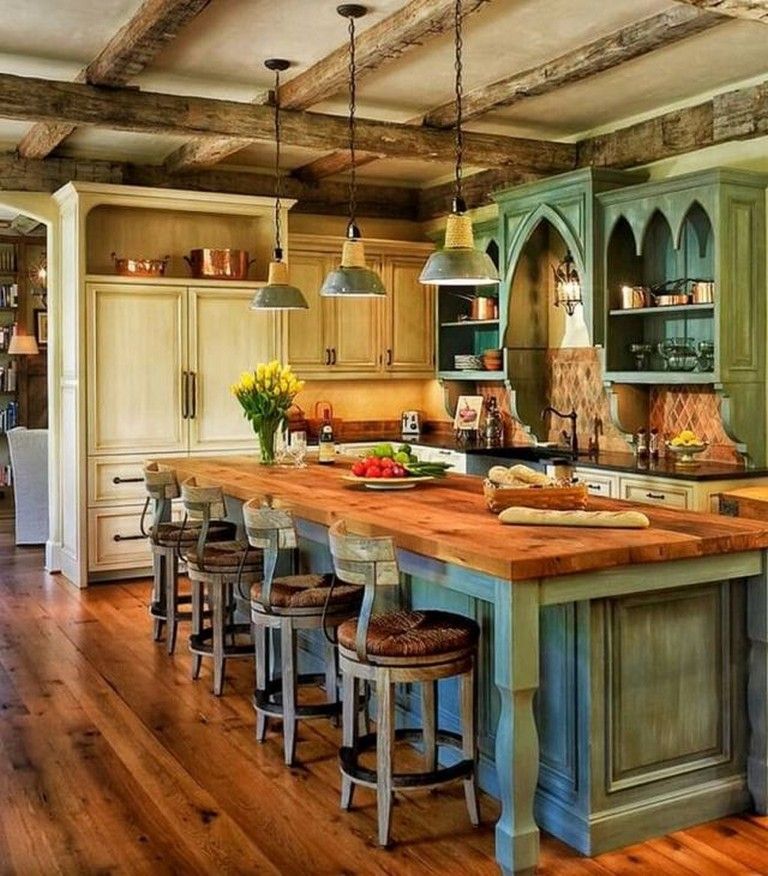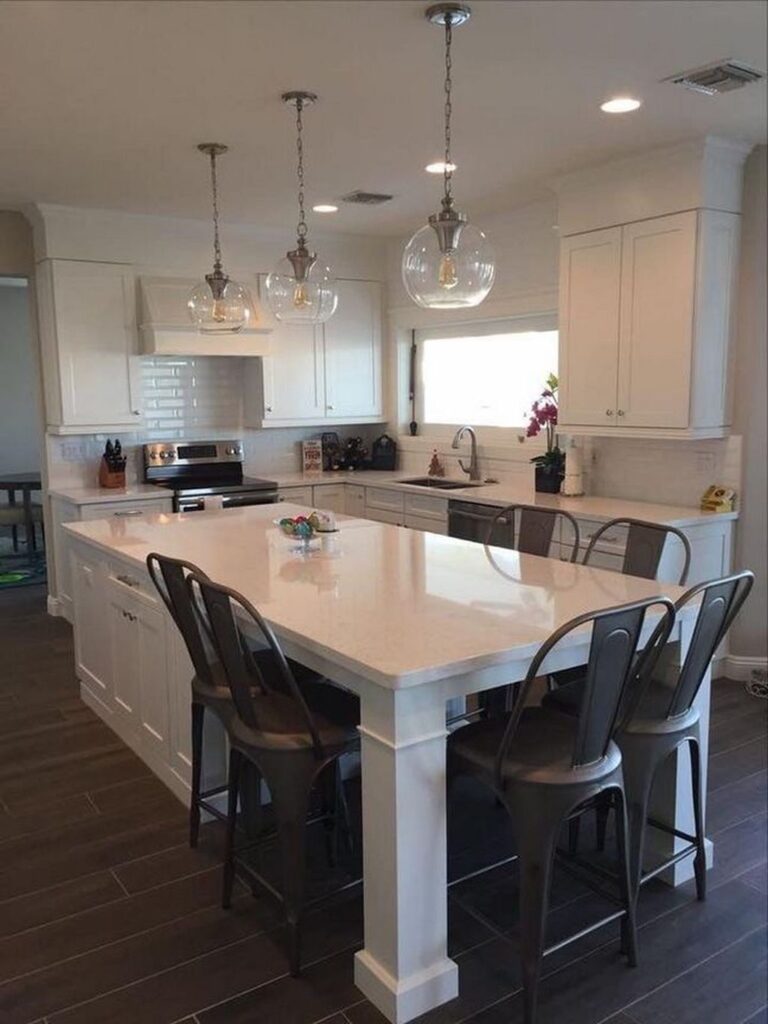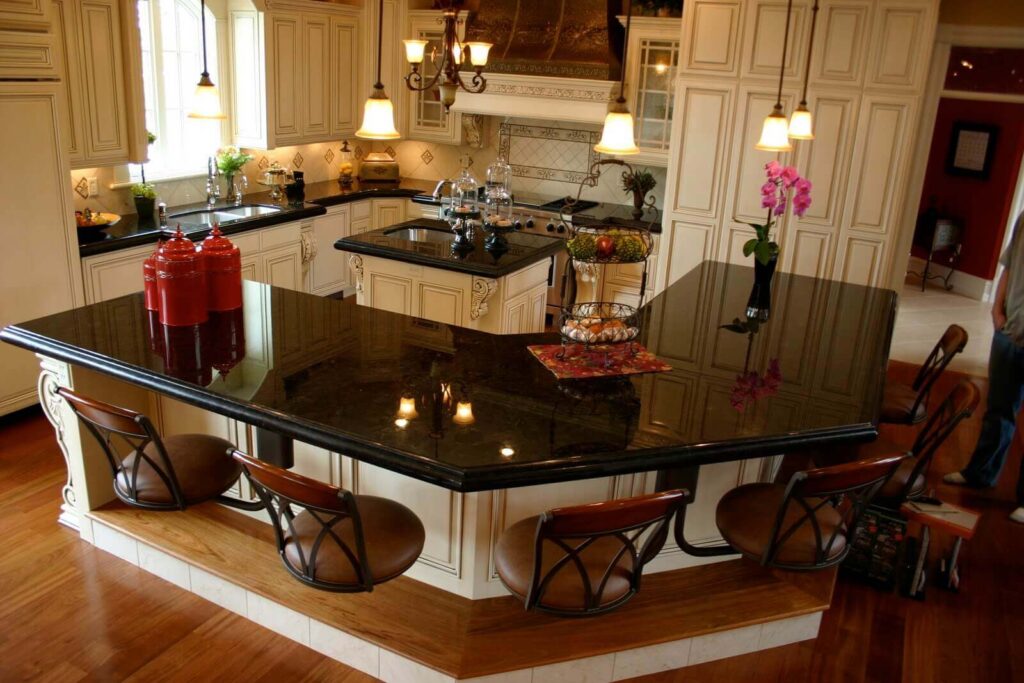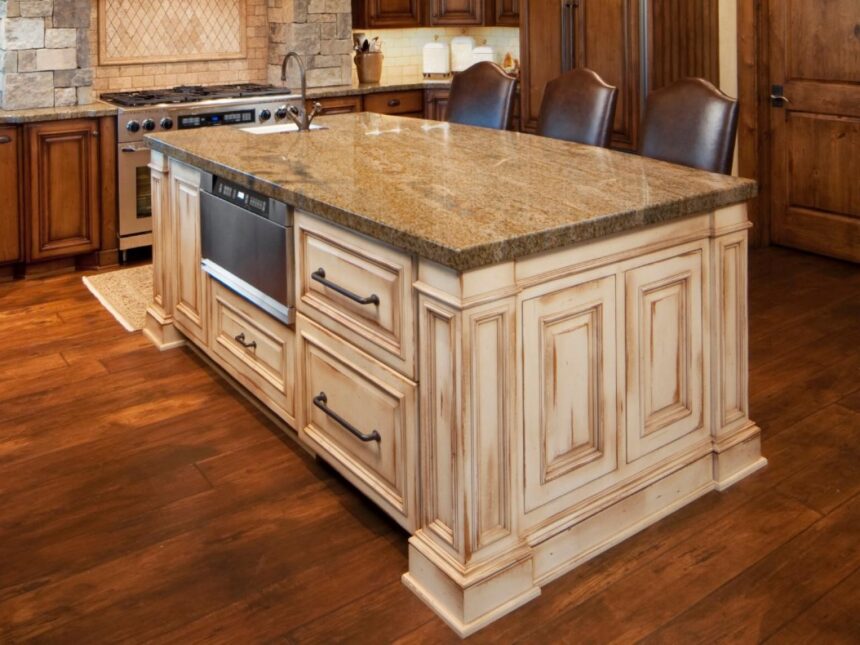A kitchen island is not just a functional addition to your culinary space; it’s a versatile centerpiece that can transform the entire look and feel of your kitchen. Whether you’re looking to create extra prep space, enhance storage options, or simply elevate the aesthetics of your kitchen, building a kitchen island can be a fantastic project to undertake.
In this guide, we’ll explore a variety of creative and inspiring kitchen island ideas that can help you design the perfect hub for cooking, entertaining, and gathering with family and friends. From classic designs to innovative concepts, let’s dive into the world of kitchen islands and discover the endless possibilities for your culinary haven.
In this comprehensive guide, we will delve into the art of building a kitchen island that not only elevates your kitchen’s functionality but also enhances its aesthetics.
Table of contents
Planning Your Kitchen Island

Before diving into construction, meticulous planning is essential. Begin by defining the island’s purpose—whether it’s a prep area, breakfast bar, or storage space. Accurate measurements of your kitchen space are crucial to ensure a comfortable fit and maintain adequate traffic flow. Materials for the base and countertop, such as wood, laminate, or stone, should be chosen based on both practicality and style cohesion.
Building the Base of Kitchen Island

The choice between constructing your base from scratch or using pre-made cabinets depends on your preferences and skill level. DIY construction offers complete customization, allowing you to incorporate shelves, cabinets, and unique features. Pre-made cabinets, on the other hand, provide convenience and save time, with the option to customize them as needed.
Countertop Choices of Kitchen Island

Choosing the perfect countertop material for your kitchen island is a decision that can significantly impact both the visual appeal and practicality of your space. Granite stands out as an excellent choice, offering a winning combination of durability and timeless natural beauty. Its elegant patterns and sturdy surface make it a popular option for homeowners looking to elevate their kitchen aesthetics.
On the other hand, Butcher Block countertops exude a cozy, rustic charm that adds warmth to your kitchen. Beyond its inviting appearance, Butcher Block remains highly functional, providing an ideal surface for various food preparation tasks. If you prefer a sleek, contemporary look with minimal maintenance requirements, Quartz is the way to go.
Its modern appearance seamlessly integrates into modern kitchen designs, and its non-porous surface makes it a breeze to clean and maintain. Ultimately, the countertop material you choose will not only reflect your personal style but also play a pivotal role in enhancing the overall functionality and ambiance of your kitchen island.
Assembling Your Kitchen Island
With all materials in hand, it’s time to assemble your kitchen island:
Base Assembly
Follow instructions for pre-made cabinets or, if building from scratch, ensure proper reinforcement for the base.
Countertop Installation
Carefully install your chosen countertop material, ensuring it’s level and securely fastened.
Finishing Touches
Personalizing your kitchen island is where it truly becomes a centerpiece:
Paint or Stain
Choose a finish that complements your kitchen’s color scheme.
Hardware Selection
Install handles, knobs, or pulls that match your kitchen’s style.
Lighting
Consider pendant lights or under-cabinet lighting for both aesthetics and functionality.
Seating Options
If your island includes a breakfast bar, select stools that are comfortable and stylish.
Maintenance and Care

To ensure your kitchen island stands the test of time, follow these maintenance tips:
Regular Cleaning
Regularly clean your countertop to prevent stains and damage.
Sealing
If your countertop is natural stone, maintain its appearance by regularly sealing it.
Hardware Check
Periodically tighten any loose handles or knobs.
Conclusion
Building a kitchen island is an exciting home improvement project that can significantly enhance the functionality and appeal of your kitchen. With careful planning, the right materials, and a touch of creativity, you can create a kitchen island that not only serves as a practical workspace but also becomes the heart of your home. Start your kitchen island project today, and watch your kitchen transform into a more functional and inviting space.
Readmore: What home decor items sell most?
Frequently Asked Questions (FAQs)
You’ll typically need a saw, drill, screws, level, measuring tape, and safety equipment.
from a few hundred to several thousand dollars.
Costs vary widely based on materials and complexity, ranging
Yes, it’s possible, but it may require professional assistance to ensure safety and code compliance.
eatures.
In small kitchens, consider a slim, mobile kitchen island or one with fold-out .





